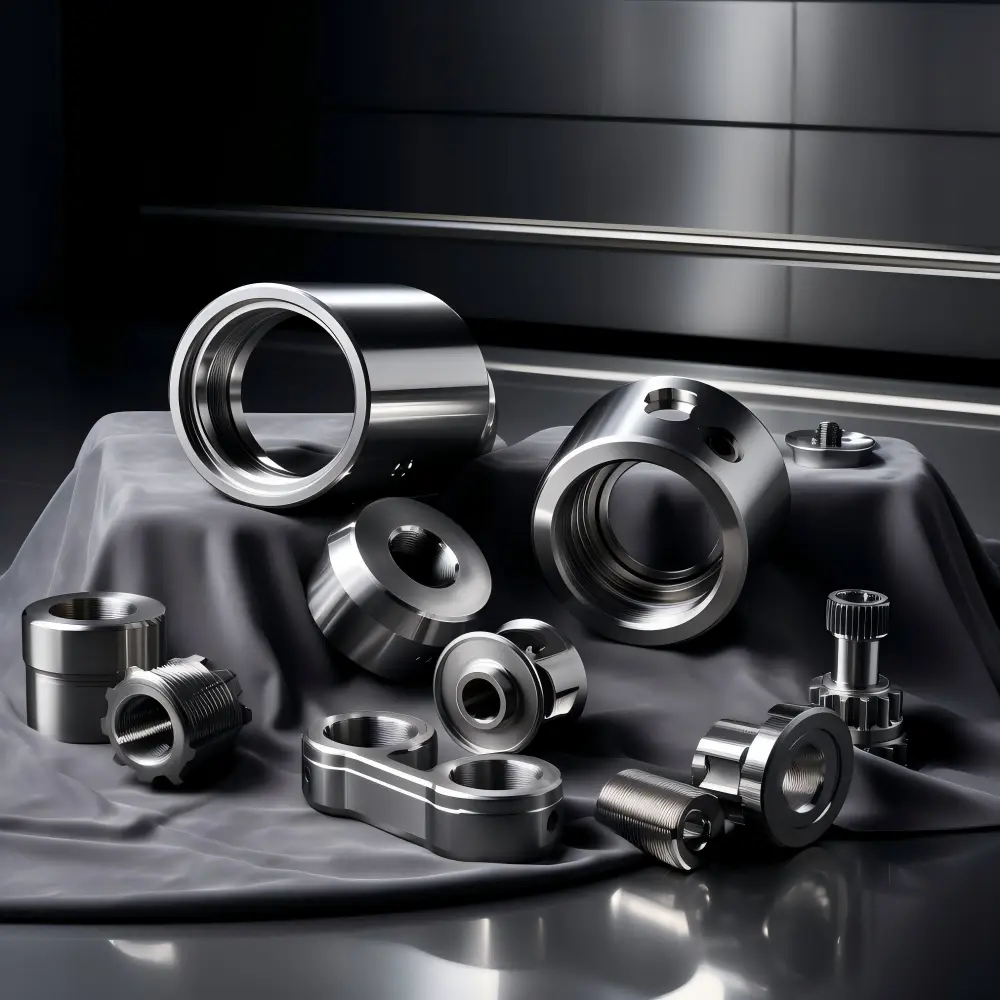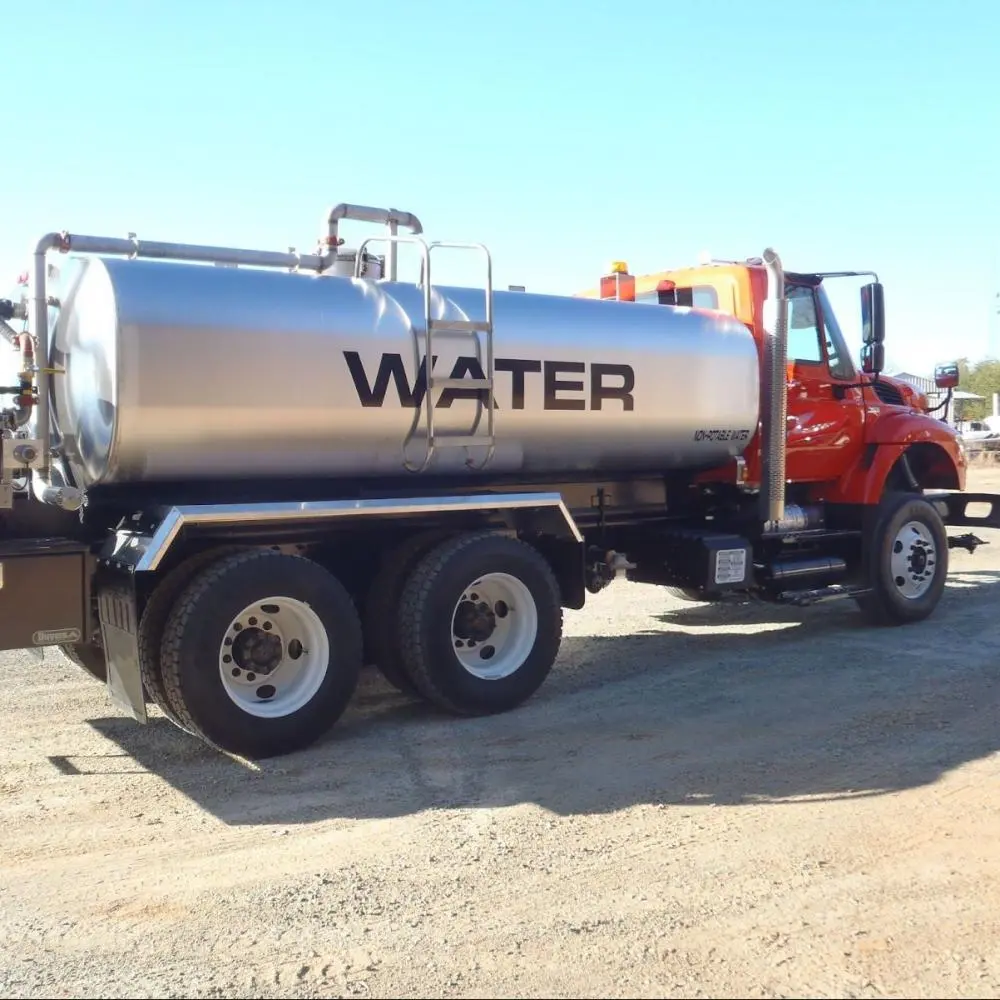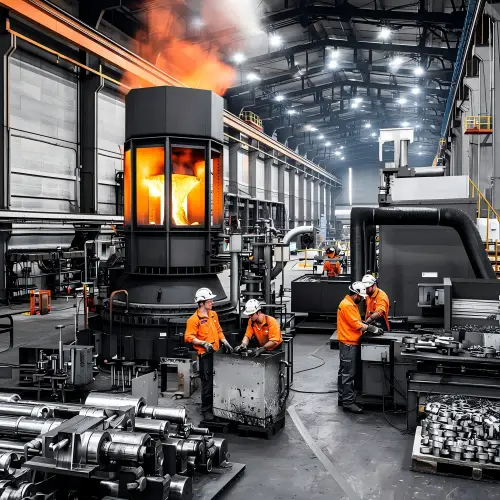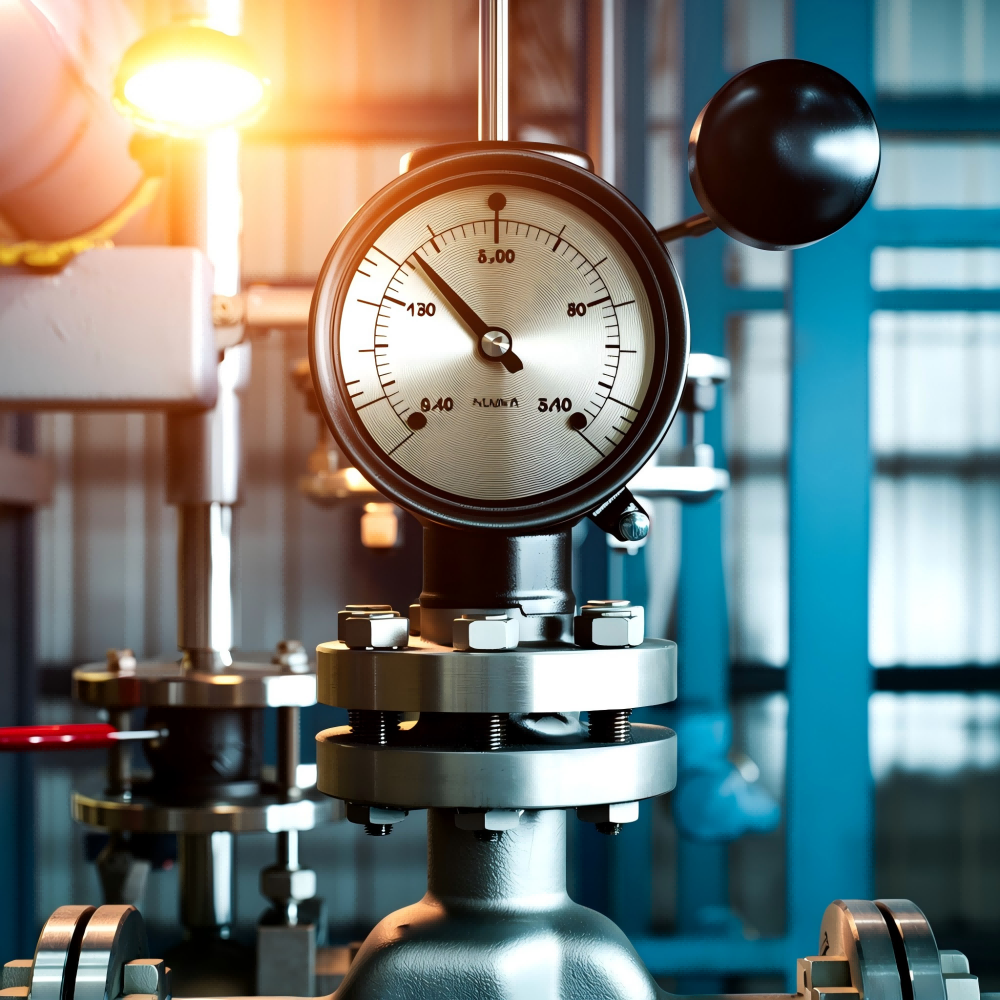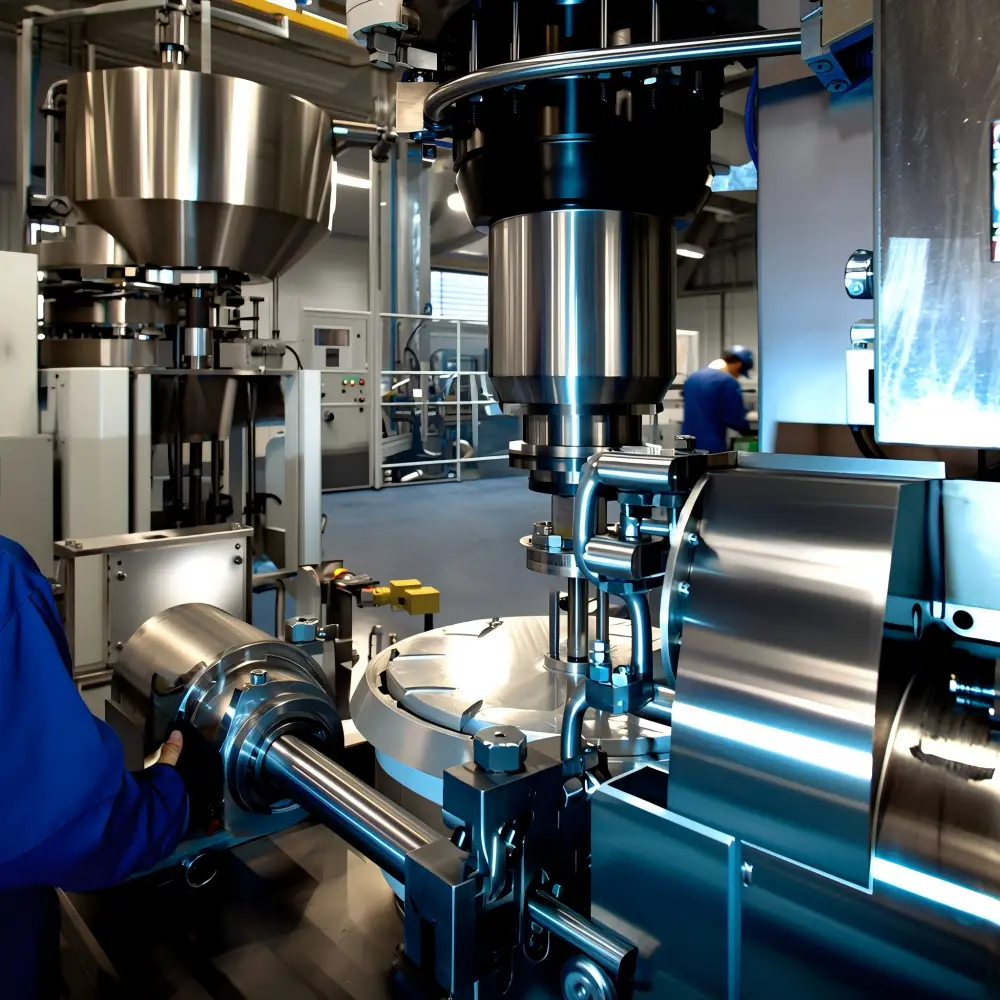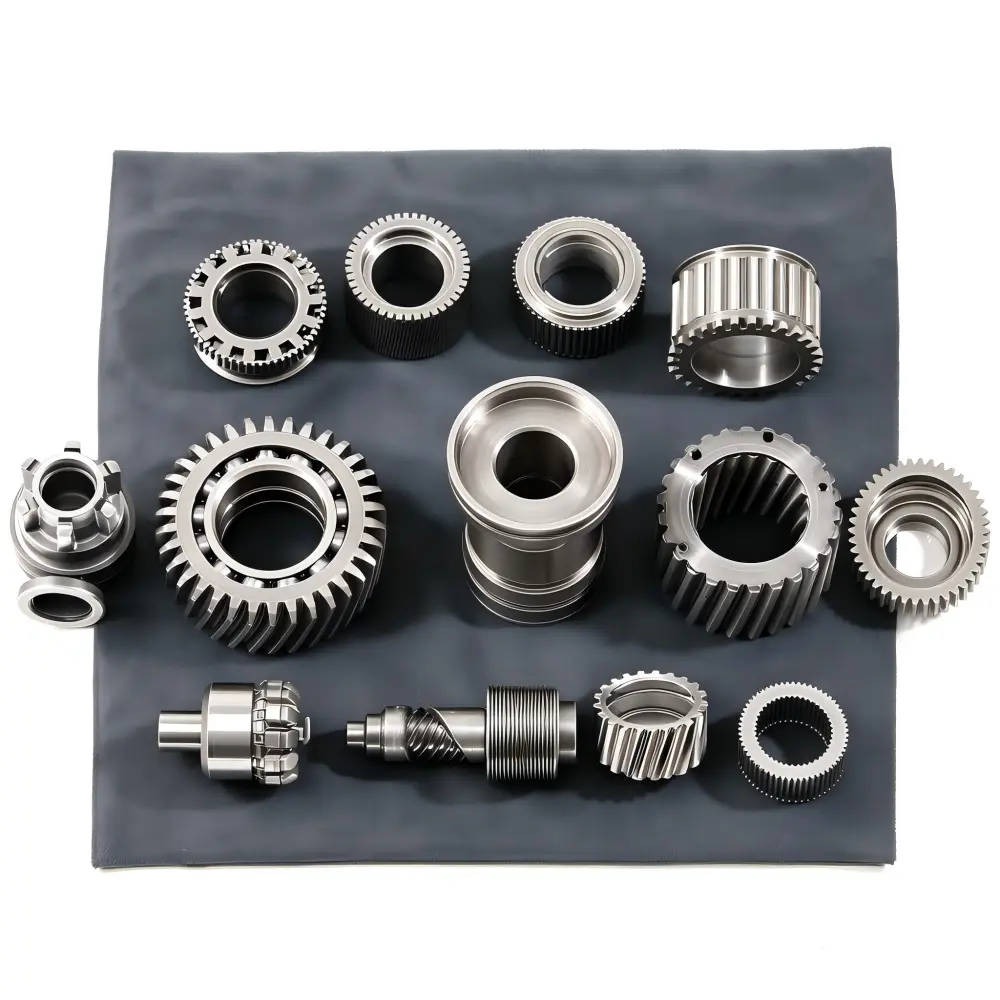How Stainless Steel Precision Castings Are Used in Valve Manufacturing
Stainless steel precision castingsplay a vital role in valve manufacturing. These castings enable the creation of components with exceptional accuracy and durability. Their corrosion-resistant properties make them ideal for industries requiring reliable performance under harsh conditions. Manufacturers rely on this process to produce intricate valve parts that meet strict specifications. The precision achieved ensures that valves operate efficiently, even in demanding environments. By utilizing stainless steel Precision Castings, industries benefit from components that combine strength, longevity, and resistance to wear.
Key Takeaways
- Stainless steel precision castings are essential for producing durable and accurate valve components, ensuring reliable performance in harsh environments.
- The Casting Process allows for the creation of complex valve designs, enhancing functionality and efficiency in applications like oil and gas, chemical processing, and water treatment.
- Corrosion resistance is a key benefit of stainless steel, extending the lifespan of valves and reducing maintenance needs in aggressive conditions.
- Precision casting techniques, including wax pattern creation and ceramic shell coating, ensure high dimensional accuracy and surface finish for valve components.
- Quality control measures, such as non-destructive testing and dimensional inspection, guarantee that stainless steel castings meet strict industry standards for performance and reliability.
- Customization of stainless steel precision castings allows manufacturers to tailor valve designs to specific industrial requirements, enhancing adaptability across various applications.
- Utilizing stainless steel in valve manufacturing not only improves durability and strength but also contributes to sustainable practices by minimizing waste and resource consumption.
Types of Valves Manufactured Using Stainless Steel Precision Castings
Gate Valves
Gate valves control the flow of liquids or gases by lifting a gate or wedge out of the path of the fluid. Manufacturers use stainless steel precision castings to produce gate valve components with high dimensional accuracy. This ensures a tight seal when the valve is closed, preventing leaks. The corrosion-resistant properties of stainless steel make these valves suitable for industries like oil and gas, where exposure to harsh chemicals and extreme temperatures is common. The precision casting process allows for the creation of intricate designs, enabling gate valves to perform reliably under high-pressure conditions.
Ball Valves
Ball valves regulate flow using a spherical disc that rotates within the valve body. Stainless steel precision castings provide the strength and durability required for these components to withstand frequent operation and high-pressure environments. The smooth surface finish achieved through precision casting ensures a tight seal, reducing the risk of leaks. Ball valves made from stainless steel are widely used in industries such as chemical processing and water treatment. Their ability to resist corrosion and wear enhances their longevity, making them a cost-effective choice for demanding applications.
Check Valves
Check valves allow fluid to flow in one direction while preventing backflow. The precision casting process enables manufacturers to produce stainless steel check valve components with complex geometries and tight tolerances. This ensures reliable performance, even in systems with fluctuating pressures. Stainless steel's resistance to corrosion makes these valves ideal for applications involving aggressive fluids or environments. Industries such as wastewater management and petrochemicals rely on stainless steel precision castings to create check valves that maintain system integrity and efficiency over time.
Globe Valves
Globe valves regulate fluid flow by using a movable disk and a stationary ring seat within a spherical body. Manufacturers rely on stainless steel precision castings to produce these components with exceptional accuracy. The casting process ensures the intricate internal structures of globe valves meet strict dimensional requirements, enabling precise flow control. This precision is critical for applications where throttling or flow regulation is necessary.
Stainless steel's durability enhances the performance of globe valves in high-pressure and high-temperature environments. Industries such as power generation and chemical processing frequently use these valves due to their ability to maintain efficiency under demanding conditions. The corrosion-resistant properties of stainless steel also make globe valves suitable for handling aggressive fluids, ensuring long-term reliability.
The smooth surface finish achieved through precision casting minimizes friction within the valve. This reduces wear on moving parts, extending the valve's operational life. Additionally, stainless steel precision castings allow for customization, enabling manufacturers to tailor globe valves to specific industrial needs. This adaptability ensures optimal performance across a wide range of applications.
The Stainless Steel Precision Casting Process
The stainless steel precision castings process involves several meticulous steps to ensure the production of high-quality components.
Wax Pattern Creation
The process begins with the creation of a wax pattern. Manufacturers design this pattern to replicate the exact shape and dimensions of the final valve component. A mold is used to form the wax into the desired shape, ensuring precision from the outset. This step is critical because the wax pattern serves as the foundation for the entire casting process. Any imperfections at this stage could affect the final product's quality. By focusing on accuracy during wax pattern creation, manufacturers set the stage for producing stainless steel precision castings that meet strict industrial standards.
Ceramic Shell Coating
This stage ensures that the mold can accurately capture the intricate details of the wax pattern, resulting in stainless steel precision castings with exceptional detail and durability, following the investment casting process.
Metal Pouring and Solidification
After the ceramic shell hardens, the wax inside is melted and drained, leaving a hollow cavity in the shape of the desired component. Molten stainless steel is then poured into this cavity. The metal fills every detail of the mold, ensuring the final casting matches the original design. Once the metal cools and solidifies, the ceramic shell is broken away to reveal the raw casting. This step requires careful control of temperature and pouring techniques to prevent defects and ensure the integrity of the final product. The result is a stainless steel precision casting that exhibits the strength, accuracy, and corrosion resistance necessary for valve manufacturing.
Finishing and Quality Control
The finishing and quality control stage ensures that stainless steel precision castings meet the stringent requirements of valve manufacturing. This phase involves several critical steps to refine the raw casting and verify its compliance with industry standards.
-
Surface Treatment
Technicians remove any residual ceramic material from the casting's surface using specialized equipment. Processes like sandblasting or chemical cleaning eliminate imperfections, ensuring a smooth and uniform finish. This step enhances the component's appearance and prepares it for further machining or assembly. -
Dimensional Inspection
Precision tools, such as calipers and coordinate measuring machines (CMM), measure the casting's dimensions. These tools confirm that the component adheres to the exact specifications outlined in the design. Any deviations are identified and corrected to maintain the required tolerances. -
Heat Treatment
Heat treatment improves the mechanical properties of the casting. By subjecting the stainless steel to controlled heating and cooling cycles, manufacturers enhance its strength, hardness, and resistance to wear. This process ensures the casting can withstand the demanding conditions of valve applications. -
Machining
Machining refines the casting further by removing excess material and achieving the final shape. Techniques like milling, drilling, and turning create precise features, such as threads or grooves, essential for valve functionality. The machinists ensure that every detail aligns with the design requirements. -
Non-Destructive Testing (NDT)
Non-destructive testing methods, such as ultrasonic testing or X-ray inspection, detect internal defects without damaging the casting. These tests verify the structural integrity of the component, ensuring it can perform reliably under pressure. -
Final Assembly and Testing
After completing all finishing processes, the casting undergoes assembly and functional testing. Engineers evaluate its performance under simulated operating conditions. This step confirms that the component meets the necessary standards for durability, precision, and corrosion resistance.
The finishing and quality control stage guarantees that stainless steel precision castings deliver optimal performance in valve manufacturing. By adhering to rigorous procedures, manufacturers produce components that excel in reliability and longevity.
Why Stainless Steel is the Preferred Material for Precision Castings
Corrosion Resistance
Stainless steel offers exceptional resistance to corrosion, making it an ideal material for precision castings used in valve manufacturing.
Durability and Strength
The inherent strength of stainless steel enhances the durability of precision castings. This material can endure high pressures and mechanical stress without deforming or cracking. Valve components made from stainless steel precision castings perform reliably in demanding applications, including those involving heavy loads or fluctuating pressures. The material's toughness ensures that valves maintain their structural integrity over time, reducing the risk of failure. Additionally, stainless steel resists wear and abrasion, which is crucial for components subjected to frequent operation. This durability translates to cost savings by minimizing the need for replacements or repairs.
Versatility
Stainless steel's versatility makes it a preferred choice for precision castings in valve manufacturing.
Examples of Valve Applications Using Stainless Steel Precision Castings
Oil and Gas Industry
The oil and gas industry demands components that can endure extreme conditions. Valves used in this sector must withstand high pressures, corrosive substances, and fluctuating temperatures. Stainless steel precision castings provide the durability and corrosion resistance required for these applications. Gate valves and ball valves, commonly used in pipelines and refineries, benefit from the precision casting process. The intricate designs achieved through this method ensure reliable sealing and flow control, even under harsh operating conditions. By using stainless steel, manufacturers produce valves that maintain performance and safety standards over extended periods.
Chemical Processing
Chemical processing facilities handle aggressive fluids and volatile substances. Valves in this industry must resist chemical corrosion while maintaining structural integrity. Stainless steel precision castings enable the production of valve components that meet these stringent requirements. Check valves and globe valves, often used in chemical plants, rely on the material's ability to resist wear and degradation. The smooth surface finish achieved through precision casting minimizes the risk of contamination, ensuring product purity. Manufacturers also customize stainless steel valves to handle specific chemicals, enhancing their adaptability and reliability in diverse processes.
Water Treatment
Water treatment systems require valves that can operate efficiently in both clean and contaminated environments. Stainless steel precision castings play a crucial role in producing valves for this sector. The material's corrosion resistance ensures longevity, even when exposed to chlorinated water or wastewater. Ball valves and check valves, frequently used in water treatment plants, benefit from the precision casting process. The dimensional accuracy achieved allows for tight seals, preventing leaks and ensuring efficient flow control. Stainless steel valves also support the industry's sustainability goals by reducing maintenance needs and extending service life.
Stainless steel precision castings provide a foundation for manufacturing valves that excel in performance and reliability. This process ensures components achieve exact specifications, delivering unmatched precision and durability. Industries benefit from the corrosion resistance of stainless steel, which extends the lifespan of valves in challenging environments. By leveraging this advanced casting method, manufacturers produce high-quality valves that meet the rigorous demands of modern industrial applications. The combination of strength, accuracy, and resilience makes stainless steel precision castings indispensable in valve production.
FAQ
What are stainless steel precision castings?
Stainless steel precision castings are components created using the investment casting process. This method involves crafting intricate and highly accurate parts by pouring molten stainless steel precision castings into a ceramic mold.
Why is stainless steel preferred for valve manufacturing?
Stainless steel offers superior corrosion resistance, durability, and strength. These properties make it suitable for valves used in harsh environments, such as chemical processing, oil and gas, and water treatment. Its versatility also allows manufacturers to create complex designs and tailor components to specific industrial needs.
How does the precision casting process ensure accuracy?
The precision casting process achieves accuracy through meticulous steps, including wax pattern creation, ceramic shell coating, and controlled metal pouring. Each stage ensures that the final component matches the original design with high dimensional precision. Quality control measures, such as non-destructive testing, further verify the accuracy and reliability of the castings.
What types of valves are made using stainless steel precision castings?
Manufacturers use stainless steel precision castings to produce various valve types, including gate valves, ball valves, check valves, and globe valves. These valves benefit from the material's strength, corrosion resistance, and ability to withstand high pressures and temperatures.
Can stainless steel precision castings handle extreme conditions?
Yes, stainless steel precision castings excel in extreme conditions. The material resists corrosion, high pressures, and fluctuating temperatures. This makes it suitable for demanding applications in industries like oil and gas, power generation, and chemical processing.
Are stainless steel precision castings customizable?
Manufacturers can customize stainless steel precision castings to meet specific requirements. This includes tailoring the design, dimensions, and mechanical properties to suit unique industrial applications. Customization ensures optimal performance and reliability in specialized environments.
How do stainless steel valves benefit the oil and gas industry?
Stainless steel valves provide durability and corrosion resistance essential for the oil and gas industry. They maintain performance under high pressures and exposure to aggressive substances. Precision casting ensures reliable sealing and flow control, enhancing safety and efficiency in pipelines and refineries.
What role does quality control play in the casting process?
Quality control ensures that stainless steel precision castings meet strict industry standards. It involves surface treatment, dimensional inspection, heat treatment, machining, and non-destructive testing. These steps guarantee the structural integrity, accuracy, and durability of the final product.
How does the casting process contribute to sustainability?
The precision casting process minimizes material waste by using molds that produce near-net-shape components. Stainless steel's durability reduces the need for frequent replacements, lowering resource consumption. These factors contribute to sustainable manufacturing practices.
What industries rely on stainless steel precision castings for valves?
Industries such as oil and gas, chemical processing, water treatment, power generation, and wastewater management rely on stainless steel precision castings. These sectors demand durable, corrosion-resistant, and high-performance valves to ensure operational efficiency and safety.






